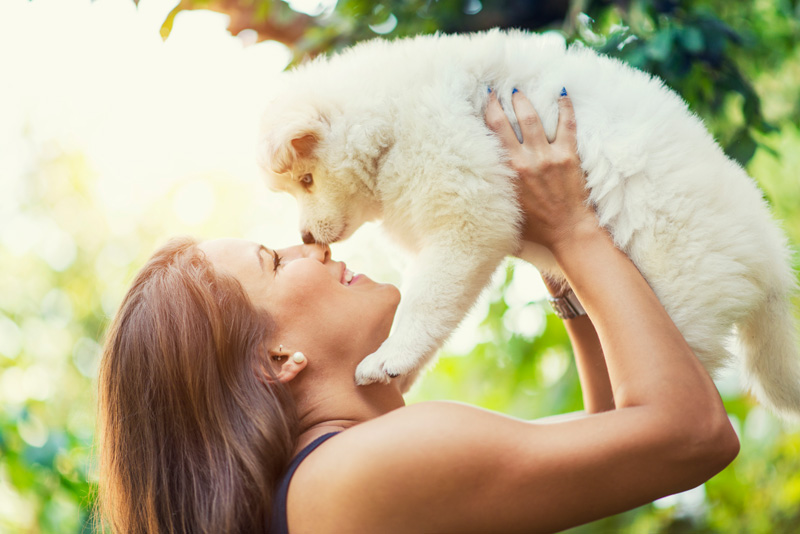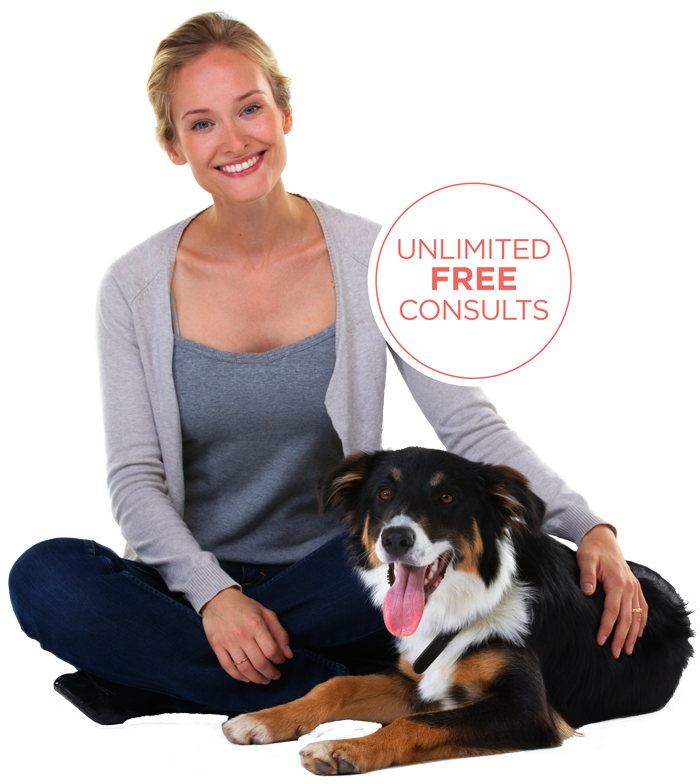What’s the first thing you do when you get a new puppy?

Cuddle them until you feel your heart is close to bursting? Check. Introduce them to the family and their new home? Check.But after that? Why, you book them into puppy school of course!
If you’re stumped why this might be the next logical step, the following experiences may help answer that. We speak to Gillian – about her adorable Labradoodle girl puppy Sunny – and Maddison with Labrador Benny – about their time at puppy school and why they felt it was the best thing they did for their new pup.
“We have a responsibility to give our pups the best start by learning basic obedience. It’s unfair to take on a puppy and not give them the time and attention they need to function and compliment their family. After all, puppies are like children – both need boundaries and are a lot more enjoyable if they are relatively well behaved!”
An early start is important
Gillian felt it was her duty as a dog owner to enrol in puppy pre-school.
Maddison agrees but also cites safety as another important reason to start early.
“Benny learnt how to socialise with other dogs and people at a young age but also commands that benefit him and his people. Thanks to puppy pre-school, Benny now understands to stop and sit before crossing a road.”
Catch it before it becomes a problem
Puppies under the age of five months old are literally sponges (just like their human counterparts!) so pre-school begins anywhere between 8 to 16 weeks of age. Early puppy training also has the advantage of allowing you to nip any potentially problematic behaviours in the bud before they have a chance to set in stone.


“At home, we noticed Benny would chew on things especially shoes, even though he had all the toys under the sun.
We told our trainer about this early on and she suggested we keep all his toys in a tub, rotating them daily or weekly so he didn’t get bored and go looking for other things – like shoes!” Maddison says.
“It worked really well. He’s stopped chewing and dragging shoes away so I’m not forever running around trying to find everyone’s footwear!”
The benefits of a structured approach
Both Maddison and Gillian felt the weekly structured lessons offered multiple benefits; for Maddison it was definitely a time-thing.
“It’s great for people who work all day and don’t necessarily have the time to sit down with their pup for extended periods. You turn up for an hour once a week over four weeks and are shown what do in a safe environment with a trainer who’s very knowledgeable. The information you gain from the four weeks can be used throughout the lifetime of your pup,” she says.
As for the training, she thought it was going to be harder than it was.
“One thing we were told is not to practise for longer than 5 minutes at a time as pups get easily distracted.
Just twice a day worked best for us,” Maddison says.


“It’s been a while since I had a puppy and training methods have changed. I appreciated all the basics like simple commands, toilet training and feeding advice.
I enjoyed the information I received because it actually worked,” she says. “I felt I was on the right track with training Sunny in some areas but it was great to have it confirmed by the teacher.
It was also good to be able to ask silly questions in a supportive environment and discover that other participants had similar issues too.”
Wait … There’s more!
Of course, there’s a bunch of other puppy pre-school benefits and since you’re twisting our arm, we’re happy to name them. Things such as imparting vital information about puppy health, nutrition, grooming and even tips on how on to read canine body language. But one of the biggest, especially from your vet’s perspective, is the chance for your young pup to familiarise themselves with the clinic surroundings.
“Puppy pre-school helped Sunny associate going to the vet with something positive and fun – not just injections and thermometers!” says Gillian.
Maddison enjoyed taking Benny on a tour around their clinic too, saying he favoured the waiting room as he was able to interact with other visiting animals. She says he also learnt how to sit on the scales and got used to all the different smells and sounds.
The final Say
So if you’ve been lucky enough to welcome a little puppy into your home, here’s hoping Gillian, Sunny, Maddison and Benny’s experiences have shown you the merits of puppy pre-school – and starting at an early age.
We’ll leave the last word to Gillian as she offers this sage piece of advice:
“All dogs are different and have their quirks. No dog is perfect … but then neither is their owner! Puppy pre-school, at the very least, gives you a good platform to build on.”
We couldn’t agree more Gillian.
If you’re interesting in hearing more about the puppy pre-school curriculum or would like to book your spot, please contact your local Fur Life Vet clinic as they’d be happy to help*.
*Not all clinics provide Puppy School. Please check with your local Fur Life Vet clinic.



Recent Comments